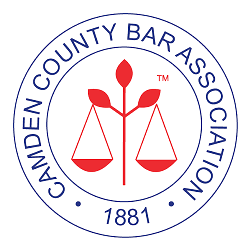October 16, 2025
Estate planning is a significant undertaking that ensures your assets are distributed according to your wishes after your passing. Drafting a will is an integral part of this process, providing legal backing to your decisions and minimizing conflicts. Given the complexity of estate planning, an experienced estate planning lawyer can guide you through the intricacies and help safeguard the future for your beneficiaries.
This article outlines critical questions to ask your estate planning lawyer before drafting a will. Addressing these queries will help you understand the process better. It will also equip you with the knowledge to make informed, strategic decisions about your estate.
1. What is the Lawyer's Experience in Estate Planning?
Experience in estate planning is pivotal when selecting a lawyer. An attorney well-versed in estate laws can guide you through complexities and offer tailored solutions. It's crucial to inquire about their years of experience and specific involvement in estate planning cases. Understanding their background can give you confidence in their ability to handle your matters competently. Besides, lawyers who engage regularly in estate planning tend to stay updated on evolving laws and trends.
Specialization is another factor to consider. Some lawyers may have a broader practice, while others focus exclusively on estate planning. A specialist is more likely to be abreast with intricate shifts in laws that might affect your will. Furthermore, reviewing their track record with similar cases provides insights into their proficiency. By examining past case results, you can gauge their capability to achieve favorable outcomes.
Continuing education and certifications are indicators of a lawyer's commitment to their field. Estate laws are subject to change, requiring constant learning. Lawyers who invest time in furthering their knowledge demonstrate a proactive approach to handling your estate. Reaching out to past clients for references can be beneficial. They can provide firsthand accounts of their experiences and the lawyer's effectiveness in estate planning.
2. How Will My Assets Be Distributed?
Determining how assets are distributed is a fundamental goal of estate planning. A comprehensive asset inventory is necessary to ensure nothing is overlooked. An estate planning lawyer can assist in cataloging all possessions, from real estate to personal items, helping document their value. This inventory forms the basis for making informed decisions about the disposition of your assets. The clarity and detail in this process can prevent disputes among heirs.
Heir designation requires careful consideration to reflect your intentions accurately. Identifying who will inherit specific assets is a personal decision that must align with your desires. Legal guidance can prevent unintended exclusions and help you consider contingency plans for unforeseen events. It's also essential to address potential scenarios such as simultaneous deaths or other changes in circumstance. Proper planning ensures your wishes are fulfilled without legal entanglements.
Charitable contributions might be a component of your estate plan. If you intend to support organizations financially, your lawyer can help facilitate these gifts in compliance with legal requirements. Planning charitable bequests can provide tax advantages while benefiting causes you value. Addressing potential conflicts by drafting clear clauses in your will is equally important. This transparency decreases the likelihood of legal challenges from disgruntled parties.
3. What Are the Legal Requirements for My Will?
Understanding the legal requirements is critical to ensure your will is valid. Every state has specific stipulations governing the creation of wills. These rules encompass aspects like legal capacity, which mandates you to be of sound mind. Clarity on such criteria is essential to create an enforceable will. A knowledgeable estate planning lawyer can guide you through meeting these prerequisites.
The act of signing your will also has stringent requirements. Your signature, often needing witnesses, validates the document legally. The number and qualifications of these witnesses can vary by jurisdiction. Grasping these legalities ensures your will is equipped to withstand any contest. Familiarity with state laws is indispensable, as implications differ significantly across regions.
Updating and amending your will is a dynamic part of estate planning. Changes in personal circumstances or the acquisition of new assets may necessitate revisions. A lawyer can facilitate these amendments to ensure your will remains current. As technology advances, digital wills have emerged, necessitating an understanding of their state-wise validity. Consulting your lawyer on this front ensures you take advantage of contemporary legal mechanisms.
4. What Are the Probate Processes Involved?
The probate process is the legal procedure of validating your will. It ensures assets are distributed as per your documented wishes. Understanding probate is crucial as it can influence how quickly and smoothly beneficiaries receive their inheritance. An estate planning lawyer can elucidate the steps involved. This knowledge allows for strategic preparations and potentially streamlining procedures where feasible.
Probate and non-probate assets are processed differently. While items solely in your name typically require probate, assets held in joint tenancy or trust may bypass it. Knowing this distinction helps in planning strategies to minimize probate's impact on your estate. It can also expedite the distribution process, reducing potential delays. Insights from your lawyer are invaluable in categorizing and designating assets effectively.
5. How Can I Minimize Estate Taxes?
Minimizing estate taxes is often a priority in estate planning. Federal and state tax laws constantly evolve, presenting challenges in maintaining favorable tax conditions. Awareness of current legislation helps in devising effective strategies to reduce your estate's tax liability. Estate planning lawyers possess the expertise to utilize relevant laws to your advantage. Their understanding aids in aligning your planning with tax efficiency.
Utilization of trusts is one effective tool in this regard. Trusts can shield certain assets from the estate tax while offering greater control over distributions. By separating assets through trusts, you can design plans to suit specific objectives. This approach helps balance tax obligations with legacy goals. A lawyer familiar with trust intricacies can optimize this strategy to your benefit.
Exploring gifting strategies is another avenue. Gifting assets while living can reduce the taxable estate size. There are limits and conditions to gifts, necessitating careful planning. Life insurance policies might serve as additional tools in your tax minimization toolkit. Long-term tax planning can incorporate these elements, enhancing your estate's preservation.
Engaging proactively with your estate planning lawyer is essential to developing a comprehensive and effective estate plan. By asking targeted questions and understanding the underlying processes, you ensure your final wishes are respected and implemented. A well-crafted will and estate plan provide peace of mind for you and clarity for your beneficiaries.
Addressing the potential for change through regular updates and amendments keeps your estate plan relevant. Whether through minimizing taxes, navigating probate, or understanding legal requirements, guidance from an experienced lawyer remains invaluable. According to Trust & Will, 83% of Americans recognize the importance of estate planning—yet only 31% have a will. This disparity highlights the importance of taking action sooner rather than later.
The benefits of a structured, thoughtful approach to estate planning extend beyond personal peace of mind. It fosters goodwill among heirs and reduces the likelihood of disputes, ensuring your legacy is preserved and honored. Empowering yourself with knowledge and legal support is a vital step in safeguarding your estate's future. As with many life decisions, preparation and informed choices are key to successful estate planning.
Take the next step in securing your legacy—contact the Law Office of Gary H. Lomanno, LLC today to schedule a consultation and start your estate planning with confidence. Our experienced team is here to guide you through every detail, from drafting your will to minimizing estate taxes.






